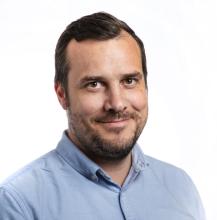Summer School 2021 (Week 2): Modern concepts in clinical trials
Trialists are increasingly turning to designs that can adapt to internal evidence or emerging external factors as the study progresses. This series of workshops provides a comprehensive manual of "How to implement an adaptive trial"; initially using lectures for a nontechnical overview and later computer practicals in both R and Stata to design and implement a simple parallel group design. There will also be a half day workshop introducing the estimand framework (ICH E9 (R1), 2019), which links the estimates of the treatment effect to the trial's objectives, accounting for events that may occur during the trial.
We gratefully acknowledge the support of The Australian Trials Methodology (AusTriM) Research Network in delivering this event.
For further information please contact or series convenor Prof Katherine Lee .
An Introduction to Adaptive Trial Designs (22 February)
This workshop will provide an overview of adaptive designs for a clinical trials with an emphasis on practical examples. Topics covered will include common adaptive trial designs, defining criteria for design adaptation, and an overview of conducting sample size calculations and interpreting trial operating characteristics for such studies. We teach these methods with a focus on simulation-based design.
This half-day workshop will cover why, how, who and when to run an adaptive trial while maintaining trial integrity. It is designed for participants with some knowledge of the design, analysis, or implementation of clinical trials within any discipline.
Practical approaches to Adaptive Trial Simulation (23 & 24 February)
Join us for an intensive workshop where you will take away the knowledge and practical skills for simulating simple adaptive trials using Monte Carlo methods. Topics include defining the inputs and outputs needed for trial simulation, and defining plausible trial scenarios for evaluation of decision quantities, thresholds and timing, Trial simulations will be generated and demonstrated using FACTS, a commercial software package, R and Stata, and graphical summaries will be used to aid communication of simulation outputs. We teach these methods focusing on a 2-arm parallel group study with adaptations based on frequentist and Bayesian methods.
This workshop will be delivered over 2 half days and will cover how to generate trial simulations to support the design of a simple adaptive trial.Prerequisites: Participants will require a sound working familiarity with Stata or R, and some knowledge of decision criteria in adaptive trials (e.g. content covered in the Overview of Adaptive Trial Designs workshop) for this workshop. Workshop participants can be provided with a temporary Stata licence, if required.
Clarifying clinical trial aims and analysis using the estimands framework (25 February)
Clinical studies aim to quantify the treatment effect associated with the primary study question. Estimating this treatment effect in a randomised controlled trial can be challenging in the presence of post-randomisation events such as use of rescue medication, switching between treatment arms, or missing data. These issues may lead to difficulties in the interpretation of the treatment effect estimate and affect the validity of the study findings. The estimands framework, presented in the International Council for HarmonisationE9 (R1) Addendum, bridges the gap between the study objectives and the statistical analysis. It adds clarity to trial objectives, informs the study design and data collection, and determines the choice of statistical analysis methods. This half-day workshop will cover why, how, who and when to define and document estimands based on internationally agreed guidelines. It is designed for participants with some knowledge of implementing a clinical trial within any discipline. Participants will workshop estimands within cross-disciplinary breakout groups.






